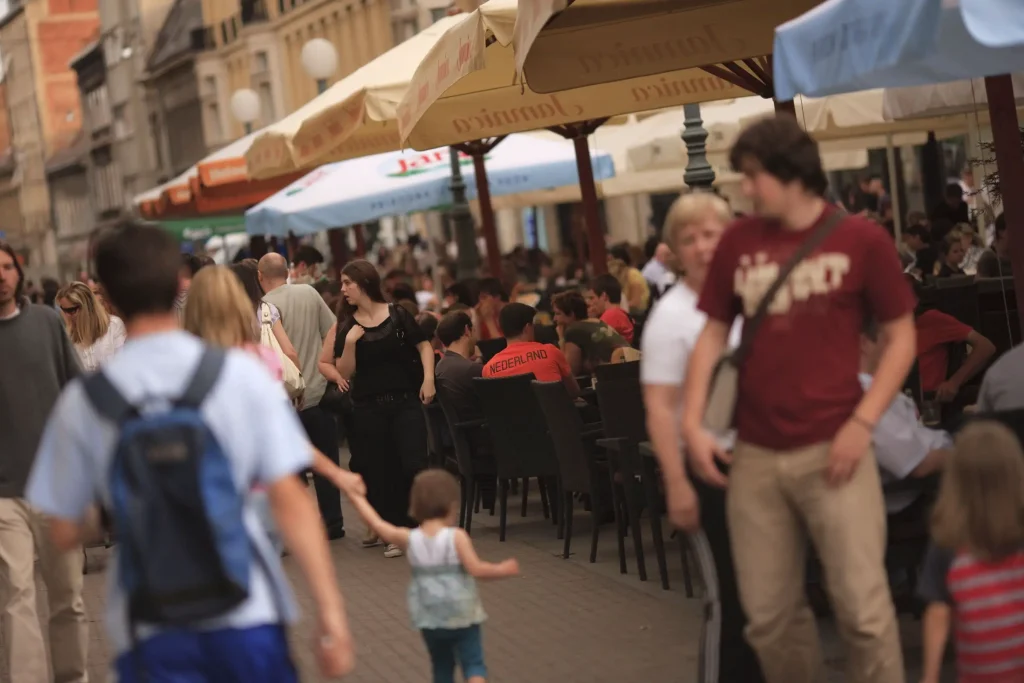Croatian competitiveness isn’t something that has had much of a spring in its step, and while the coronavirus crisis has seen it advance in ways we couldn’t have imagined in the pre-pandemic age, the country is still lagging behind.
Croatia has handled the ongoing coronavirus situation excellently, and even the likes of Oxford University have praised the country for having some of the most stringent anti-epidemic measures in the world. The epidemiological situation here in Croatia is now among the best in all of Europe, but while Croatia has come out on top on many a ”coronavirus list”, it still remains in a rather unimpressive place when it comes to Croatian competitiveness levels.
As Novac/Gordana Grgas writes on the 16th of June, 2020, the Republic of Croatia retained its somewhat infamous 60th place on the global competitiveness ranking, according to results released recently by the Lausanne Institute for Business Development (IMD). The competitiveness survey compares 63 economies, and in 2020, only the likes of Mongolia, Argentina and Venezuela are behind Croatia.
Of the 20 indices measured in this survey, Croatia ranks last in three segments: labour market, business management, and attitudes/values.
On the overall global competitiveness scale, Singapore is still holding onto its glorious first place, followed by Denmark, Switzerland, the Netherlands, Hong Kong, Sweden, Norway, Canada and the United States of America.
How are the transition countries from Central and Eastern Europe doing, given the fact that they are the ones Croatia can actually compare itself to realistically?
Slovakia is the only one near Croatia, in the 57th position. Romania ranks 51st, Bulgaria 48th, Hungary 47th and Latvia 41st. Estonia placed best, which isn’t a surprise, coming in at 28th place, followed by the Czech Republic in the 33rd place, Slovenia in the 35th and Poland in the 39th place. The Czech Republic, Hungary and Bulgaria have held the same positions since last year, much like Croatia has, while Poland, Romania and Slovakia have fallen in the rankings, with only Slovenia improving its position by two places.
The survey was conducted back in February, March and April and is based on statistical data for 2019, according to the Croatian National Competitiveness Council, which is IMD’s partner. The scale includes 255 criteria, most of which relate to statistical indicators, and the rest to the survey of business opinions. As explained, the World Competitiveness Yearbook measures how well countries manage their resources and competencies to enable the long-term creation of new values. It also analyses economic results, public sector efficiency, business sector efficiency and infrastructure.
The effects of the coronavirus pandemic aren’t pronounced in this study because this is old data from last year, before the appearance of the new virus, and the business survey only partially includes the impact of COVID-19 (for example, indicators of the adaptability of government policies and health system quality may reflect the current crisis).
Out of 20 indices for measuring competitiveness, Croatia has relatively good rankings in the field of international trade, price levels, health and environment and education (19th – 40th place on the scale), conclude the NVK, and ”it is relatively good in competitiveness in the field of foreign investment “.
In areas that are often cited as a priority for reforms (tax policy, institutional framework and technological infrastructure), Croatia isn’t at the very bottom (52nd – 55th place on the scale).
Challenges for Croatian competitiveness throughout 2020 include public administration reform and the territorial organisation of the state with the digitalisation of public administration and its services, then strengthening sectors important for self-sufficiency in national security (primarily the food, medicine and public health sectors), strengthening the private sector investment through venture capital funds, business angels and crowdfunding, judicial reform and achieving cooperation between the academic, business and government sectors in strengthening innovation and competitiveness.
For more on Croatian competitiveness, follow our lifestyle page.









